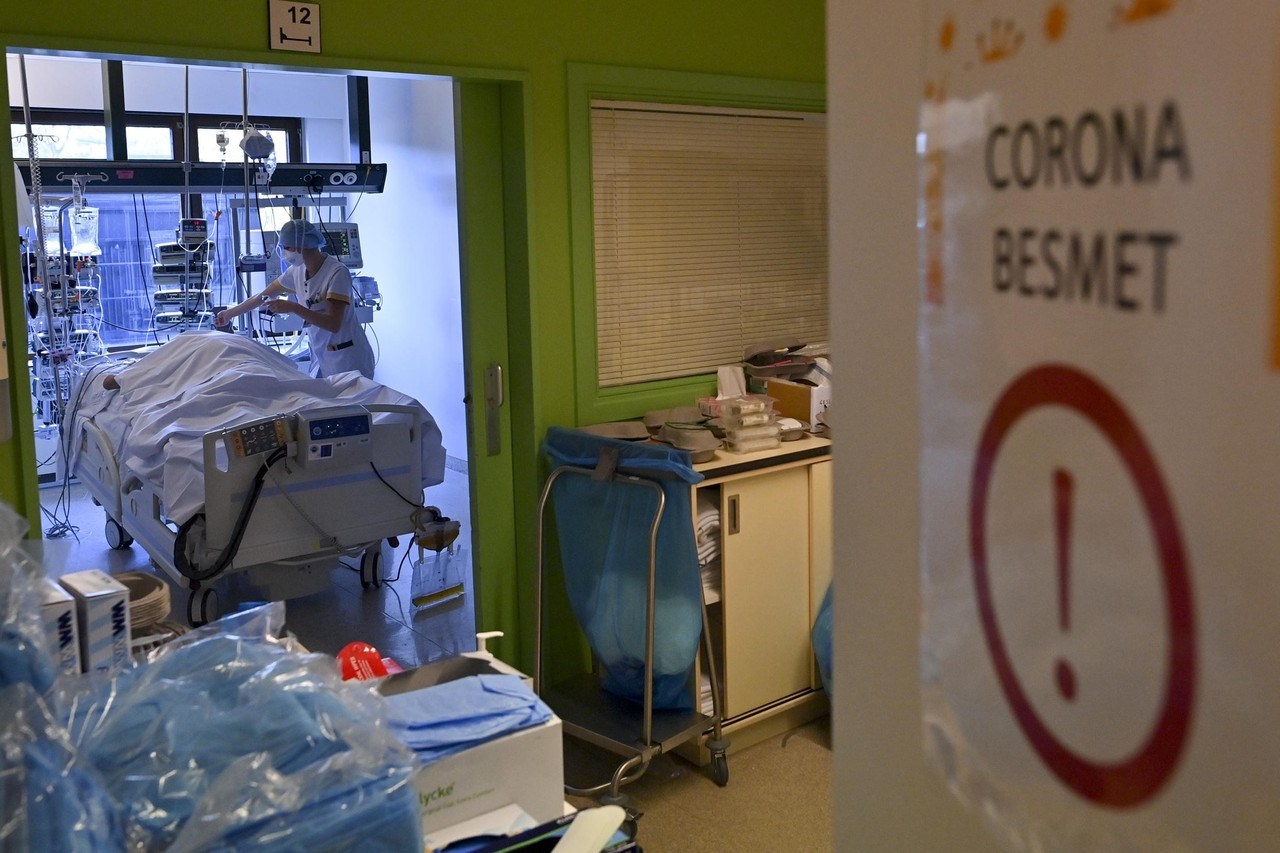The decrease in new coronavirus infections in Belgium has all but stopped after weeks of this figure dropping rapidly, while Covid-19 hospitalisations have started to increase slightly.
Between 28 February and 6 March, an average of 6,357 new coronavirus infections were identified every day, a 1% decrease on the previous seven days, according to the figures published by the Sciensano Public Health Institute on Thursday morning.
The Omicron BA.2 variant is accounting for more than half of all cases, taking over from the Omicron variant (46.5%), while the Delta variant has been completely replaced.
The average number of PCR tests taken per day in the same period declined by 13% to 32,583,4. The positivity rate now sits at 21.6%, meaning more than one in five tests has a positive result.
Expected evolution
Despite this increase, experts said that there is no reason to worry yet, and even added this evolution was expected due to the lifting of the measures in February, when Belgium issued a code orange, and again at the start of this week, when it switched to code yellow.
Virologist Marc Van Ranst expects this figure to reach a plateau, and that it will then see a rise again. “For March 7, we will end up somewhere around 8,000 new infections, while the weekly average is now 6,181,” he said on Wednesday.
He added that the number of deaths is still dropping and "the number of people in intensive care is now even below 200.”
During the same week, an average of 16.7 Covid-19 patients died on a daily basis, down by 28% since last week. The total number of deaths in Belgium since the start of the pandemic amounts to 30,354.
Related News
- No more PLF: Belgium changes travel rules from 11 March
- 'Effect of lifted measures': Experts not worried about slight rise in Covid figures
- Moderna drops vaccine patent in 92 low income countries
The official death statistics also include people who died of another cause of death, but who happened to be infected, meaning they are an overestimate of the deaths caused by the virus.
Situation in hospitals
Between 3 and 9 March, an average of 141.7 patients suffering from Covid-19 were admitted to hospitals each day – an increase of 4% on the seven days previous.
This number reflects how many people end up in hospital specifically because of the virus, not those who are admitted with another condition and then test positive for the coronavirus.

Credit: Belga
On Wednesday, a total of 2,010 people were in Belgian hospitals due to an infection, 3 more than on Tuesday, of whom 192 were being treated in intensive care (-5) and 85 (-6) patients were on a ventilator.
This number covers all patients who tested positive for Covid-19, including those who were first admitted with a different condition.
Reproduction rate, incidence, and total vaccinations
The reproduction rate (Rt) surpassed 1 again for the first time since the start of February and now sits at 1.01. This figure represents the average number of people that contract the virus from each infected person. When it is above 1, it means that the epidemic is gaining ground in Belgium.
The incidence (the number of new cases per 100,000 inhabitants) has once again started to rise slightly after weeks of rapidly decreasing, and now sits at 775 over the past 14 days.
As of Tuesday, almost 9.1 million people are fully vaccinated – 89% of Belgium's adult population and 79% of the total population.
Meanwhile, more than 7.05 million people have received a booster dose of a coronavirus vaccine, representing 75% of over-18s and 61% of the entire population. The majority of adults should have had the opportunity to get a booster dose by March 2022.
A study from the United Kingdom's Health and Security Agency (UKHSA) showed that booster vaccinations are estimated to have prevented 105,600 people from ending up in hospitals following a Covid-19 infection since mid-December.

